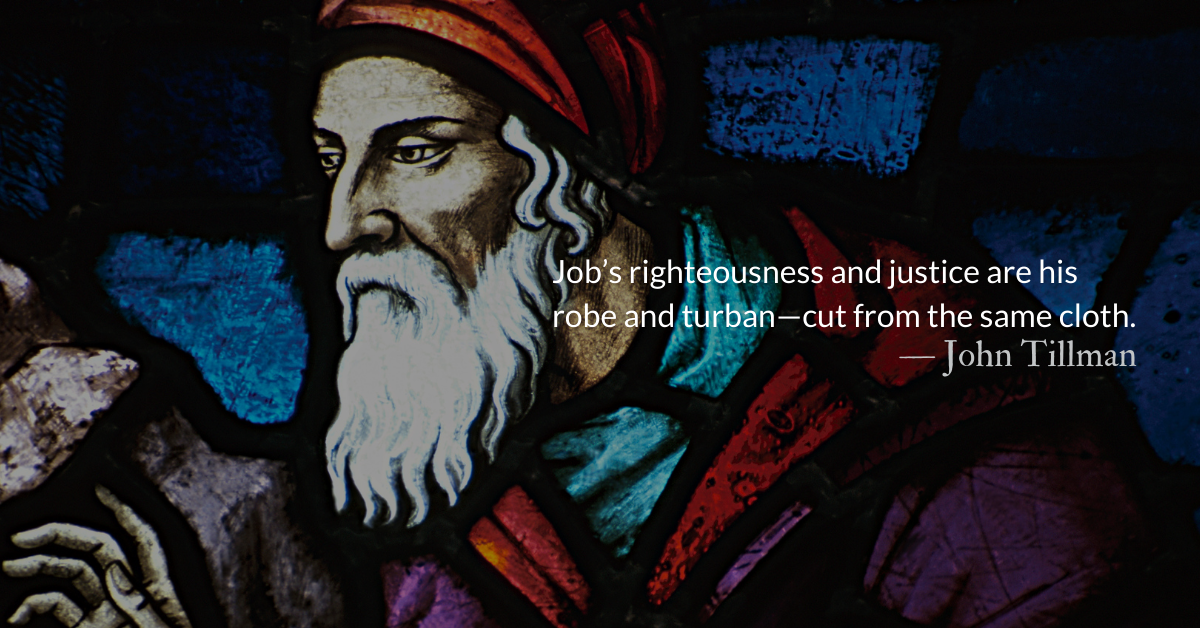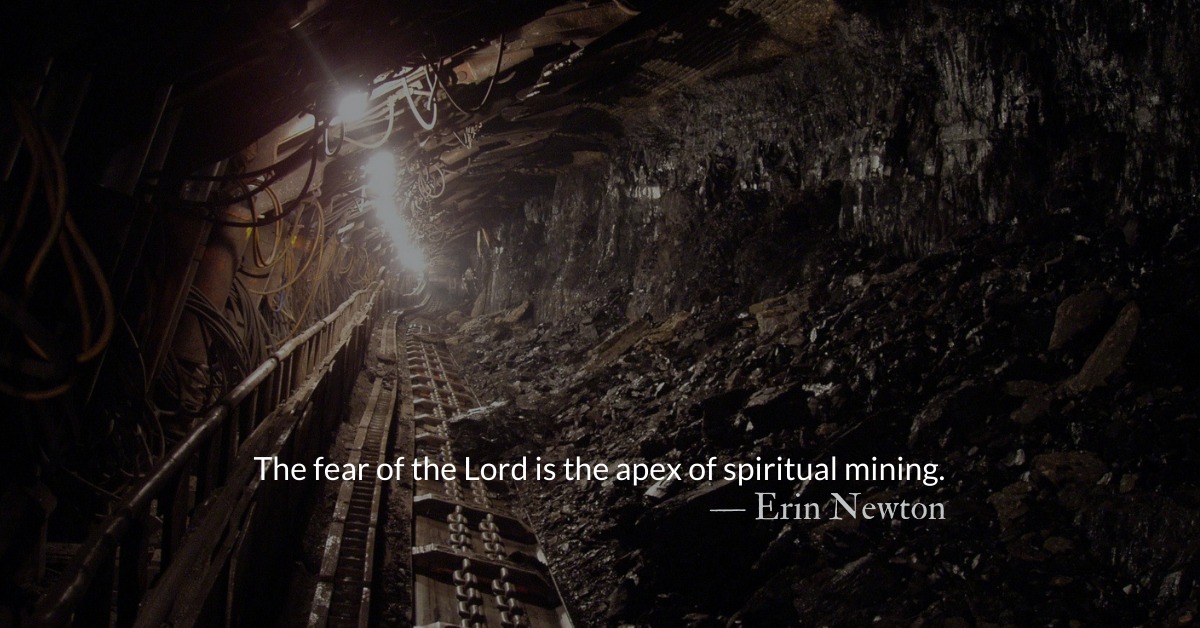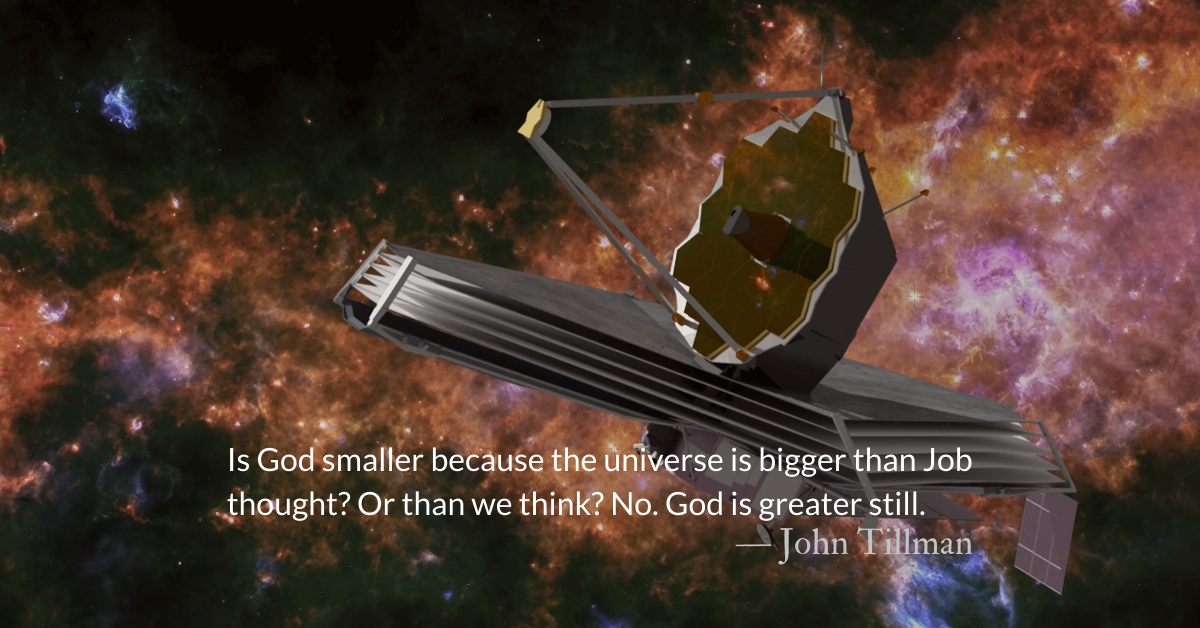Scripture Focus: Job 29.2-3, 12-17
“How I long for the months gone by,
for the days when God watched over me,
when his lamp shone on my head
and by his light I walked through darkness!…
…Whoever heard me spoke well of me,
and those who saw me commended me,
because I rescued the poor who cried for help,
and the fatherless who had none to assist them.
The one who was dying blessed me;
I made the widow’s heart sing.
I put on righteousness as my clothing;
justice was my robe and my turban.
I was eyes to the blind
and feet to the lame.
I was a father to the needy;
I took up the case of the stranger.
I broke the fangs of the wicked
and snatched the victims from their teeth.
John: This rewritten post from 2020 looks again at the relationship of righteousness and justice. For Job, they are of the same substance. We can’t have one without the other.
Reflection: Righteousness Sets Things Right
By John Tillman
When we think of righteousness, we tend to think first about righteousness via elimination. We think of avoiding sin, abstaining from certain food and drink, abjuring the company of certain people, or censoring our experience of the world. These may be wise measures for avoiding temptation but they are not marks of righteousness.
Limiting exposure to certain things to remain righteous is a confession of our unrighteous state. Light does not avoid darkness to remain light—it pierces the darkness and the darkness cannot overwhelm it. Job acknowledges that the light of righteousness that used to be his was not his own, but came from the presence of God shining through him. Rather than focus on righteousness by omission, Job describes the righteousness of commission.
In Job’s example, righteousness is connected to and related to justice. The word sedeq, translated “righteous,” also means “just” or “fair.” It also is often paired with mispat, which is translated as “justice,” in this passage but can mean “law,” or “judgment.” Job’s righteousness and justice are his robe and turban—cut from the same cloth.
Righteousness, as Job describes it, is marked by formidable, positive actions on behalf of justice. Righteousness sets things right. Job defines his righteousness by his use of power, wealth, and influence to benefit the weak, the marginalized, and the victimized.
When Job walked in, the powerful trembled. They recognized an enemy who would break their “fangs” which were their means of holding onto prey and exerting their poisonous control.
When Job walked in, those taking advantage of the poor would lose their control and investment. When Job walked in, abusers knew their time was up.
When Job walked in, the needy rejoiced and the outcast celebrated. When Job walked in, the fatherless felt the power of a father on their side. When Job walked in widows knew that they would no longer suffer indignity or disregard.
When the church and Christians walk in righteousness, the powerful will tremble at our approach. Oppressors will pray that we do not show up. Swindling money-lenders will dread us setting their debtors free.
Do you walk in righteousness? Ask yourself this question. Who gets nervous when you approach? Do the powerful pat you on the back? Or do the oppressed consider you a friend?
Righteousness may not be righteous if it makes the wrong people nervous.
Divine Hours Prayer: The Refrain for the Morning Lessons
Blessed is he who comes in the name of the Lord; we bless you from the house of the Lord. — Psalm 118.26
– From The Divine Hours: Prayers for Autumn and Wintertime by Phyllis Tickle.
Today’s Readings
Job 29 (Listen – 2:26)
Psalm 38 (Listen – 2:14)
Join us! Walk through the Bible with us…
Share this subscription link with friends, family, or your community of faith. Find joy reflecting on God’s Word!
https://mailchi.mp/theparkforum/m-f-daily-email-devotional
Read more about Justice Brings Joy
Would we bury the tasks of righteousness and justice in the ground and dig them up, undeveloped and unimproved, to hand back to Christ?











